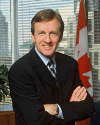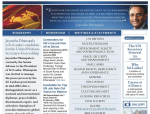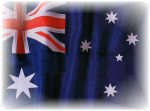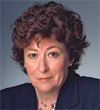 Suzanne Dimaggio of the United Nations Association of the United States recently asked former U.S. Ambassador to the United Nations Thomas Pickering for his thoughts on the selection of the next UNSG. Ambassador Pickering will be heading up a task force of UNA-USA on the selection process in the coming months. Interested visitors can download or stream a video of the interview on the UNA-USA’s website.
Suzanne Dimaggio of the United Nations Association of the United States recently asked former U.S. Ambassador to the United Nations Thomas Pickering for his thoughts on the selection of the next UNSG. Ambassador Pickering will be heading up a task force of UNA-USA on the selection process in the coming months. Interested visitors can download or stream a video of the interview on the UNA-USA’s website.
Ambassador Pickering, who served as U.S. Ambassador to the UN during the selection of Secretary General Boutros Boutros-Ghali, was asked his views about the tradition of regional rotation, how the UNSG should be chosen, and what qualities he or she should possess. The next UNSG, the Ambassador suggested, must be
“…an extremely successful diplomatic manager, someone who understood the major issues, understood the organization, how to successful manage the organization, was capable of delegating, and had, in every sense, the stature, the personal qualities, the ability to make the rest of the world – the members states of the organization and the public at large – have confidence in him or her.”
To select the most qualified person for the post, Ambassador Pickering called for a stronger role for the General Assembly in suggesting qualified individuals to the Security Council or a formal search committee of “…very highly qualified members – perhaps former heads of states from all regions – who could put together a slate that they could agree with; that would be one input to the process.” He suggested that regionality was one criterion, but that others, including gender, should have as much importance in consideration.
“If you don’t begin with a rich mixture of excellent candidates, the end result is not likely to be the best person,” the Ambassador noted.

 “Canada hopes to stimulate an informed discussion on selecting the next UN Secretary-General. UNSG.org facilitates that by bringing aspects of this question forward in a knowledgeable and balanced way. It’s very helpful.”
“Canada hopes to stimulate an informed discussion on selecting the next UN Secretary-General. UNSG.org facilitates that by bringing aspects of this question forward in a knowledgeable and balanced way. It’s very helpful.”

 “The selection of the next secretary-general of the United Nations will not be decided on the basis of whether I or anybody else expresses any interest in the position. An expression of interest by anybody is a pure exercise of vanity.”
“The selection of the next secretary-general of the United Nations will not be decided on the basis of whether I or anybody else expresses any interest in the position. An expression of interest by anybody is a pure exercise of vanity.”



